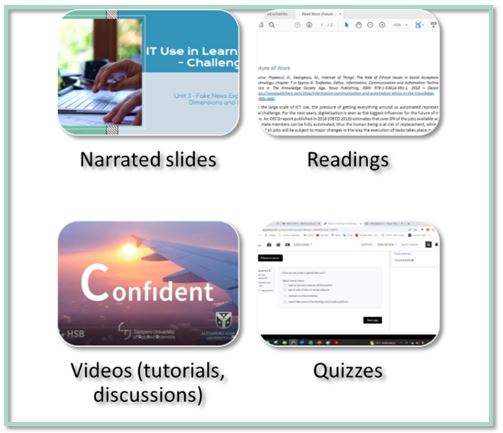The Digital Learning module is designed to address the needs of learners to get accustomed to different online teaching and learning platforms and tools, thus ensuring a better inclusion in virtual study and work groups. Another goal of the module is to tackle the topic of ethics and information security in order to ensure the individuals’ welfare in the digital world, and to fight against cyberbullying, fake news, online violence and other means of online disinformation.

Digital competence is
defined by the European Commission as “the CONFIDENT, critical and responsible
use of, and engagement with, digital technologies for learning, at work, and
for participation in society” European Commission (2019). Improve your digital competence
with the Confident
Open Module in Digital Learning!
| The structure of the module is the following:
Chapter 1 – Intercultural Communication in the Digital World:
Unit 1 – Power of Diversity in Multicultural Virtual Teams
Unit 2 – IT Solutions for Supporting Virtual Teams (tools for informal teamwork)
Chapter 2 – E-Learning Platforms:
Unit 1 – E-Learning Definition, Advantages, and Disadvantages
Unit 2 – Widely Used E-Learning and Knowledge Sharing Platforms (tools for formal teamwork)
Unit 3 – E-Learning 2.0 (and beyond), Mobile Learning, Gamification
Chapter 3 – IT Use in Learning - Challenges:
Unit 1 – Ethical Challenges
Unit 2 – Cybersecurity Threats
Unit 3 - Fake News Exposure. Dimensions and Effects
Unit 4 – Guide for an Ethical, Secure and Non-Biased Behavior in the Digital World
Chapter 4 – Teamwork:
Using the e-learning platforms and the Cyber Café platform, mixed teams of students will interact and debate on themes derived from the module's contents: cases, theoretical inputs, videos, self-learning exercises, quizzes, and further links to different kinds of platforms and literature used.
|

|
